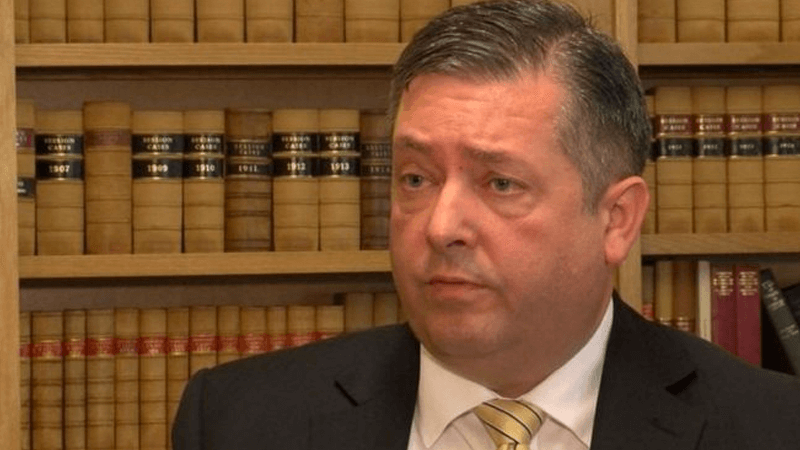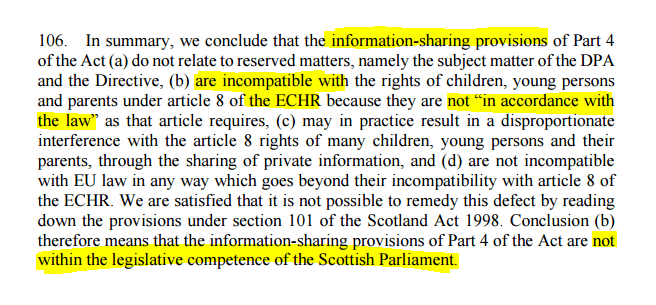Scot Gov legal advisor could have prevented lengthy Named Person battle

Court action on the Named Person scheme could have been avoided if Scotland’s Lord Advocate had listened to concerns raised by The Christian Institute in 2014.
A week before Named Person legislation completed its passage through Parliament, the Institute wrote to Frank Mulholland – the Scottish Government’s chief legal advisor at the time.
In a letter, the Institute’s In-house Solicitor Sam Webster expressed “considerable doubt” as to whether the legislation behind the Named Person scheme was “compatible with Article 8 of the European Convention on Human Rights”.
‘Interference’
He urged Mr Mulholland to refer to the UK Supreme Court the question of whether the legislation would be “within the legislative competence of the Scottish Parliament”.
And he drew attention to data sharing provisions, warning that they “appear to fail the test of being in ‘accordance with the law’”.
Read the full letter (PDF 1.2MB)
Strikingly, the UK Supreme Court recognised these exact points when it issued a ruling against the Named Person scheme in July this year.
Paragraph 106 of the judgment stated that the data sharing provisions mentioned were incompatible with the European Convention on Human Rights, ” because – as Mr Webster pointed out – they are not ‘in accordance with the law’”.
It concluded by stating that the legislation is not “within the legislative competence of the Scottish Parliament”.

Extract from the UK Supreme Court judgment on the case of The Christian Institute and others vThe Lord Advocate (Scotland).
Protracted legal battle
The Lord Advocate could have taken the Institute’s concerns on board and halted the progress of the legislation while the issues were addressed – preventing a protracted and costly legal battle in the Scottish courts, leading to the Government being defeated in the Supreme Court.
Instead, an Assistant Legal Secretary wrote back to say he had “taken account of the points raised” but did not consider them “appropriate to make a reference”.
The Christian Institute joined with other charities, individuals and concerned parents to form the campaign group No to Named Persons (NO2NP) in 2014. A petition by the group has so far secured the support of more than 36,000 Scots.
‘Swept aside’
Spokesman Simon Calvert expressed disappointment that concerns were “swept aside” from the very start.
“People involved with NO2NP have been raising human rights and information sharing concerns for years.
“Tymes Trust, Home Education Forum, CARE and others all raised concerns during the passage of the legislation, but Ministers and MSPs ignored them.
“The Christian Institute’s letter to the Lord Advocate precisely identified problems in the Named Person legislation and urged him to use his power to consult the Supreme Court – but this advice was swept aside as well.
Defiant
“If he had listened, he could have saved the Government and many other people a lot of time, money and effort. And saved families a lot of anxiety.”
After the Supreme Court judgment, the Scottish Government tried to present the result as a victory for its legislation.
Deputy First Minister John Swinney repeatedly stated that the Supreme Court had found the Named Person scheme to be ‘unquestionably benign’.
But the main plank of the scheme was struck down by the court when the key information sharing provisions were deemed to be illegal. The Supreme Court described these provisions as “central to the role of the named person”.
Wholesale rewrite
The Government has given itself a year to address the concerns of the court, demonstrating the level of revisions needed. Any new legislation will be very different to what the Government proposed before.
After the Supreme Court ruling, John Swinney announced that he would consult with key stakeholders to determine how best to move forward – but he has so far refused to meet with NO2NP.
Mr Calvert added: “The Government doesn’t seem to have learnt from its mistakes. Many people involved in NO2NP correctly forecast the illegality of the Named Person scheme before the legislation was passed. Perhaps it’s time they started listening to people who take a different view.”
